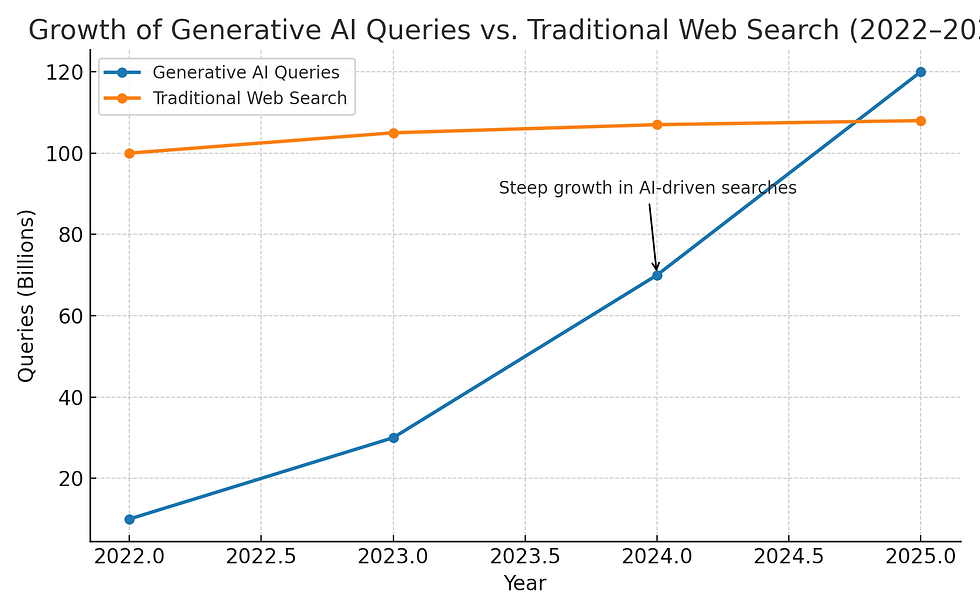GEO Optimizing Content for Generative AI Search Engines
- Gathoni Njenga

- Aug 14, 2025
- 3 min read
How structured, citation-ready content can help your business stand out in AI-driven answers
SoulCycle cofounders Julie Rice and Elizabeth Cutler
Just launched your new business and need resources to ace direct marketing at lower costs with higher ROI?
Check out Salesfully’s course, Mastering Sales Fundamentals for Long-Term Success, designed to help you attract new customers efficiently and affordably.
When Google introduced SEO as a mainstream digital marketing necessity, brands raced to understand keywords, backlinks, and page authority. Today, the same scramble is happening again—but this time, it’s not about winning a blue link. It’s about being cited in the AI-generated answers that tools like ChatGPT, Google Gemini, and Perplexity AI deliver instantly to users.
This emerging discipline—Generative Engine Optimization (GEO)—is the process of structuring and enriching your content so that generative AI systems consider it reliable, relevant, and worth citing.
Why GEO Matters Now
A 2024 survey from Statista found that 54% of global internet users now use AI-driven tools for research or decision-making at least weekly. Unlike traditional search, generative AI produces a synthesized answer, often sourcing from multiple pages. If your site isn’t optimized for AI retrieval, you risk being invisible in this new digital front door.
In fact, research from BrightEdge shows that over 80% of the top-cited pages in generative answers have structured headings, clear topical segmentation, and contextual outbound links to authoritative sources.
How Generative AI Decides What to Cite
While exact algorithms remain opaque, experts like Rand Fishkin of SparkToro note that generative AI engines rely heavily on:
Structured, Topic-Dense Content – Clear headings and subheadings (H2/H3) that break topics into digestible sections.
Citations to Reputable Sources – Linking to recognized sites like Harvard Business Review or Forbes increases perceived trustworthiness.
Entity-Rich Metadata – Tags and descriptions that include proper nouns, industries, and measurable data.
Authoritativeness Signals – Clear author bios, credentials, and context about your expertise.
A Stanford study on AI information retrieval found that generative models often overweight “trusted web clusters”—networks of interlinked, credible sources—when selecting citations.

Building AI-Ready Content
Think of GEO as writing for a research assistant, not a search index. To improve your chances of being cited:
Use Explicit Metadata: Include descriptive titles, <meta> keyword tags, and alt text that names entities, places, and dates.
Prioritize Contextual Linking: Connect to other reputable articles, reports, and research rather than generic homepage links.
Answer the Entire Query: Write comprehensive responses that address multiple possible interpretations of a question.
Publish Original Data: AI prefers sources that offer unique statistics, surveys, or case studies it can reference.
For example, a B2B SaaS company that adds proprietary user-behavior data to its blog posts increases its likelihood of being cited over a competitor that only offers general advice.
A 2025 Semrush analysis found that pages containing original research were 65% more likely to be cited by AI engines than content without proprietary data.
Where GEO Fits Into Your Marketing Strategy
Much like traditional SEO, GEO isn’t a standalone tactic—it’s a layer within your content marketing and thought leadership strategy. That means your blog posts, reports, case studies, and even landing pages should follow AI-ready structuring principles.
Forward-looking companies are even training internal AI tools to audit and rewrite existing content for generative retrieval optimization. Platforms like MarketMuse and SurferSEO are beginning to integrate GEO-specific features that predict citation likelihood.
One Expert’s Take
As Neil Patel put it:
“The next era of content visibility won’t be about showing up on page one of Google—it’ll be about showing up in the only answer people see.”
This means adapting now could place your brand in front of millions before your competitors even realize the shift.
Just launched your new business and need resources to ace direct marketing at lower costs with higher ROI?
Check out Salesfully’s course, Mastering Sales Fundamentals for Long-Term Success, designed to help you attract new customers efficiently and affordably.
Don't stop there! Create your free Salesfully account today and gain instant access to premium sales data and essential resources to fuel your startup journey.
.png)















Comments